The Spanish military has intercepted migrants as thousands of people - including children - swum into the enclave of Ceuta on the north African coast after taking advantage of relaxed border controls.
By Tuesday morning, around 6,000 people had crossed the border by sea into the Spanish city since the first arrivals began early on Monday. Of those, 1,500 are thought to be teenagers.
Footage showed the armed forces arriving on beaches and detaining some of those trying to cross.
By Tuesday lunchtime some 2,700 migrants had been returned, Spain's prime minister, Pedro Sanchez, has said that every person who entered Ceuta illegally will be expelled.
"We are going to restore order to the city and its borders," he said.
He added that the sudden increase in migrants is a serious crisis for Spain and Europe, and that he will be travelling to the region soon.
Spain had previously announced that troops would be deployed to the region, with border patrols starting "immediately".
Around 200 extra police officers have been sent to Ceuta, with 1,200 constables already in the region.
Soaked migrants, either swimming or paddling in inflatable boats, were still arriving on Tuesday although in smaller numbers due to the heightened police and military response on the Spanish side of the border.
A spokesperson for the Spanish authorities said one person died during the migration.
Adults were being transferred to a football stadium before being returned to Morocco, while minors were being sent to an industrial building.
Ceuta, with a population of 80,000, is located across the Mediterranean from Gibraltar, and shares a land border with Morocco.
Film showed the crowds traversing the waters on Monday, with many people shown running or giving thumbs up as they entered the Spanish territory.
Tunisian authorities said more than 50 migrants drowned after a shipwreck near the coast of Sfax on Monday, while 33 others were rescued from an oil platform.
All of the survivors were from Bangladesh and the boat departed from Libya on Sunday, Flavio Di Giacomo, the spokesperson for the Mediterranean coordination office of the International Organisation of Migrations said.
The nationality of the migrants who died is not immediately clear.
Ceuta and Melilla - which is 150 miles further east - commonly attract African migrants looking to get to Europe.
Spanish television has reported that about 85 people had scaled the border fence to get into Melilla.
Foreign minister Arancha Gonzalez Laya told national radio that people who crossed the border illegally are already being returned to Morocco.
She added that Spain will "keep a cool head".
Tensions between Spain and Morocco are on the rise following the hospitalisation of Brahim Ghali.
Mr Ghali is the leader of the Algerian-backed Polisario Front, which contests Morocco's claim on the Western Sahara region.
Morocco has been angered by Spain admitting the 71-year-old to the country - with the north African state saying this was done under a false name and without informing them.
Reuters also reports that Mr Ghali is being treated in a Spanish hospital.
Foreign minister Gonzalez Laya added that she believed the migrant influx was not in retaliation for Mr Ghali's treatment.
Spanish Prime Minister Pedro Sanchez called the north African nation a friend of Spain while describing the influx of migrants as a "serious crisis"
"This sudden arrival of irregular migrants is a serious crisis for Spain and Europe," Mr Sanchez said.
"I want to tell all Spaniards, especially those in Ceuta and Melilla, that we will re-establish order in your city and at our borders with the utmost speed. We will act firmly to ensure your safety."
She said: "I cannot speak for Morocco but what they have told us a few hours ago, this afternoon, is that this is not due to the disagreement (over Ghali).
"Spain has been very clear and detailed about the case. It's simply a humanitarian issue."
In Italy, the tiny Mediterranean island of Lampedusa saw another influx of migrants from Africa, with 1,200 migrants arriving within the span of 12 hours from Libya.
One fisherman on the island who arrived legally in Italy years ago said it is "painful" to see young people coming to the island without papers.
"If somebody had told me that in Lampedusa, every day, 30 or 25 boats arrive, I wouldn't have believed it. But now that I came here, I saw it with my own eyes," Ibrahima Mbaye said.
"It's painful for me when I see young people coming here to find a better future when it's not sure they can find it."
"They come without papers, and here if you don't comply with the rules, it's hard to find work."
https://news.google.com/__i/rss/rd/articles/CBMihgFodHRwczovL25ld3Muc2t5LmNvbS9zdG9yeS9jZXV0YS1taWxpdGFyeS1pbnRlcmNlcHQtbWlncmFudHMtYXMtNi0wMDAtaW5jbHVkaW5nLWNoaWxkcmVuLXN3aW0tZnJvbS1tb3JvY2NvLXRvLXNwYW5pc2gtZW5jbGF2ZS0xMjMwOTcwMdIBigFodHRwczovL25ld3Muc2t5LmNvbS9zdG9yeS9hbXAvY2V1dGEtbWlsaXRhcnktaW50ZXJjZXB0LW1pZ3JhbnRzLWFzLTYtMDAwLWluY2x1ZGluZy1jaGlsZHJlbi1zd2ltLWZyb20tbW9yb2Njby10by1zcGFuaXNoLWVuY2xhdmUtMTIzMDk3MDE?oc=5
2021-05-18 14:26:15Z
52781602336291
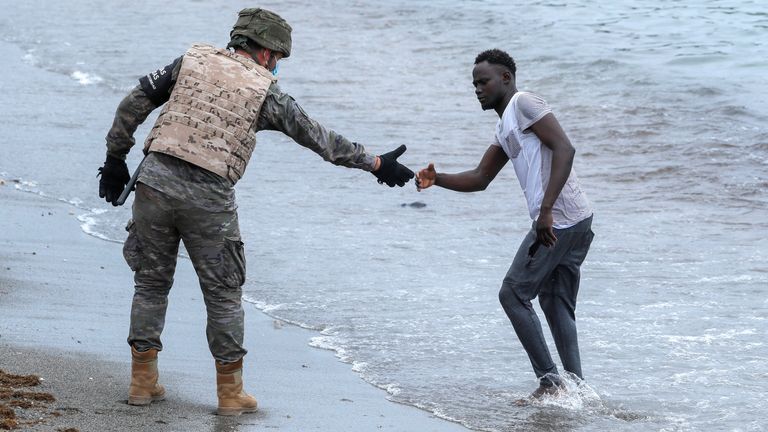
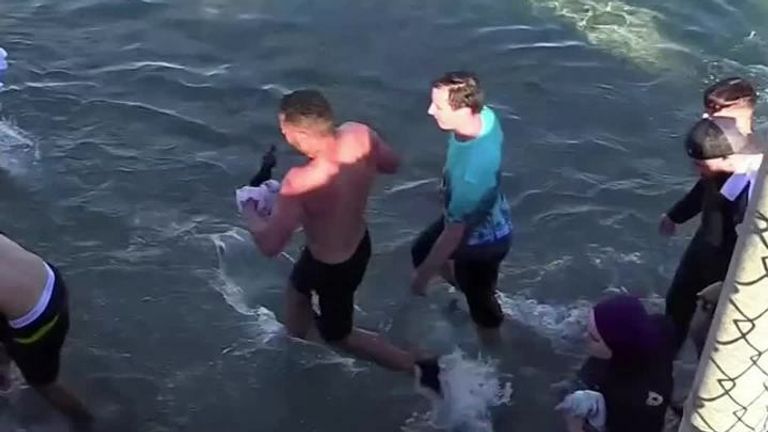
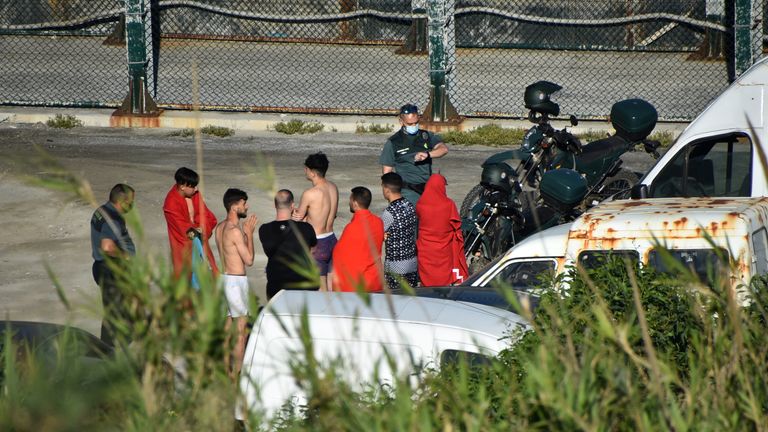
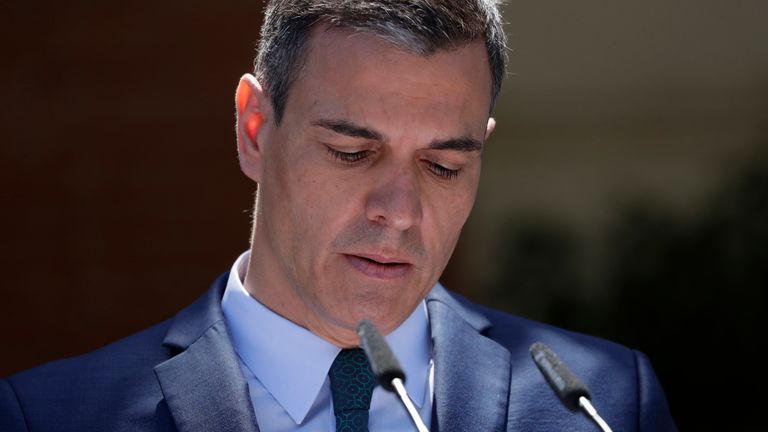
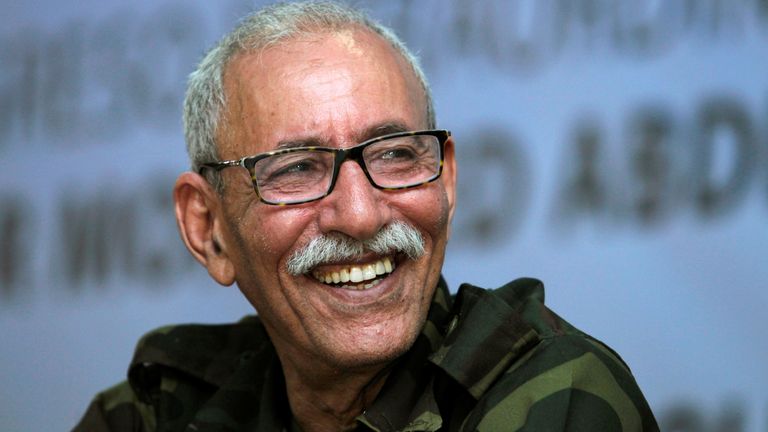
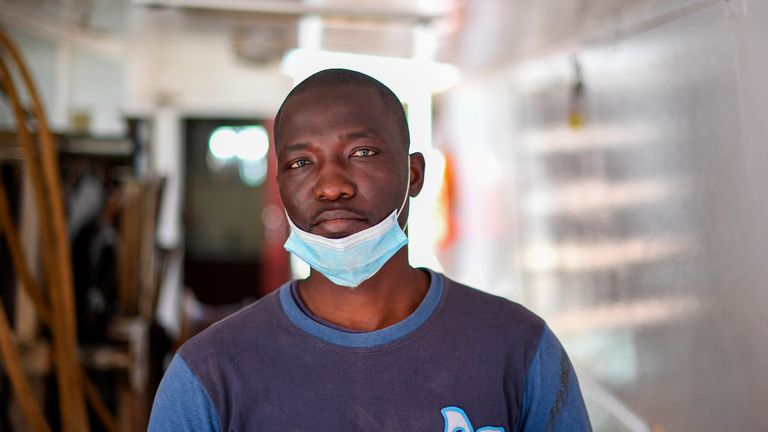
Tidak ada komentar:
Posting Komentar